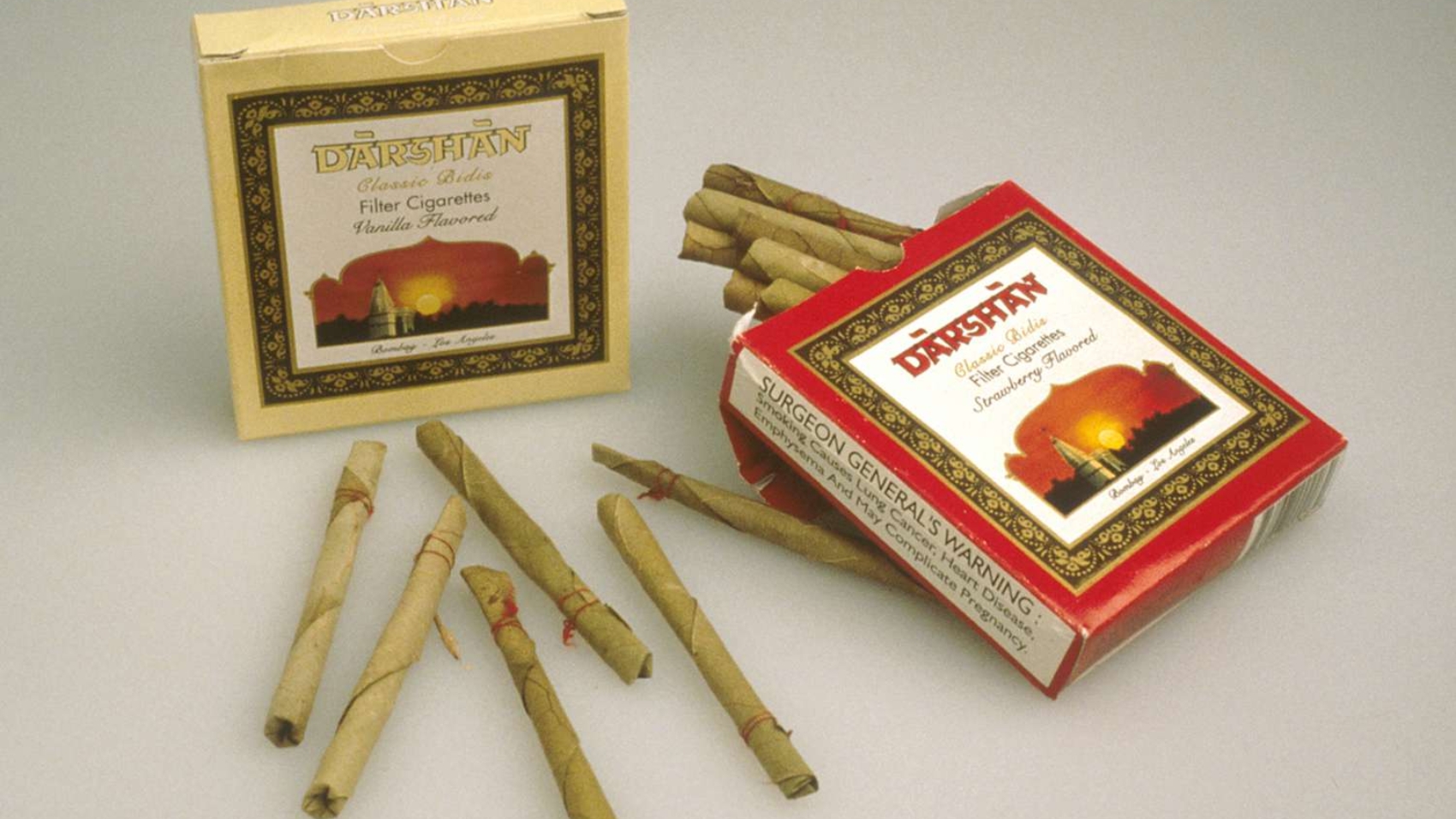Key Takeaways
- Bidis contain more nicotine, tar, and carbon monoxide than regular cigarettes, making them very harmful.
- Smoking bidis increases the risk of cancer, heart disease, emphysema, and chronic bronchitis.
- You can quit smoking bidis by using nicotine replacement therapies and creating a plan to manage cravings.
Bidis (pronounced bee-dees and also known as beedis) are small hand-rolled cigarettes made of tobacco and wrapped in tendu or temburni leaf (Diospyros melanoxylon), a plant native to Asia. Bidis are manufactured in India and other southeast Asian countries and exported around the world.
In India, bidi cigarettes are less expensive and more heavily consumed than traditional commercial cigarettes. It is a common misconception that because these cigarettes are less expensive, they are also less harmful. That is untrue. Bidis are as harmful as other cigarettes and can cause death from lung and heart disease.
What Are Bidis?
Bidis are sometimes referred to as “cigarettes with training wheels” by health authorities. Like clove cigarettes, this product’s overall appearance and taste are especially appealing to young people.
They are typically tied on one or both ends with bits of colorful string and produced in various flavors that appeal to kids, including chocolate, mango, vanilla, lemon-lime, mint, pineapple, and cherry.
Bidi cigarettes gained popularity in the United States in the mid-1990s. Young American smokers were attracted to bidis because they were easier to obtain than traditional cigarettes, provided a rush of nicotine, and were small, flavored, and looked like marijuana joints.
Bidi cigarettes are not associated with the Bidi brand of disposable vape products.
How are bidis made?
Bidis are made in India and other countries in Southeast Asia. They are made by hand-rolling unprocessed tobacco in tendu or temburni leaves. They are then often tied using colorful strings.
Health Risks of Bidis
In some respects, bidis are actually more harmful than regular commercial cigarettes produced in the U.S.
- Bidi cigarettes contain three to five times more nicotine than traditional cigarettes, which means that there is an increased risk of nicotine addiction.
- Bidi cigarettes contain more tar and carbon monoxide than regular cigarettes.
- People who smoke bidis breathe in higher levels of toxins because bidis don’t have chemicals added to help with combustion. People must draw on a bidi cigarette more often and with more force to keep it from going out.
People who smoke bidis have an increased risk of oral cancer, lung cancer, stomach cancer, and esophageal cancer. The risk of heart disease and heart attack is three times higher for bidi smokers than nonsmokers. Bidi smoking is also associated with emphysema and increases the risk of chronic bronchitis.
How much nicotine does a bidi contain?
Research has found that bidi cigarettes contain approximately 21.2 mg/g of nicotine, significantly more than the 16.3 mg/g of nicotine found in a regular filtered cigarette. Because of this increased amount of nicotine, it is also believed that people who smoke bidis are at a higher risk of becoming nicotine dependent.
Are Bidis Illegal in the U.S.?
By 1999, there was a call to action against bidis by state attorneys general. These officials urged Congress and federal authorities to stop their import to the U.S.
Bidi consumption significantly declined in February of 2014 when the Food and Drug Administration (FDA) ordered four brands of bidis be removed from the market: Sutra Bidis, Sutra Bidis Red, Sutra Bidis Menthol, and Sutra Bidis Red Cone.
The manufacturer was unable (or unwilling) to provide documentation that proved the products do not raise new or different health concerns for the general public.
This was the first tobacco ban put in place as a result of the Family Smoking Prevention and Tobacco Control Act, which gave the FDA the authority to regulate tobacco products in the United States.
Bidis can still be purchased online, but have lost popularity in the United States since the ban.
Recap
You can still buy bidis online, but they have decreased in popularity since the FDA banned the sale or import of four bidi tobacco products. As of December 20, 2019, you must be 21 years old to purchase any tobacco products in the United States.
How to Quit Smoking Bidis
Bidis are hazardous to human health and should not be considered a safe alternative to traditional cigarettes. These products have been popular with young people, which is why parents should proactively teach their children early on about the dangers of bidi cigarettes and smoking.
If you want to stop smoking bidis or other tobacco products, there are a few things you can do that will help:
Talk to Your Doctor
Share your plans with your doctor. They can recommend a quitting approach that might work best for you. They may also be able to prescribe medications that might help with withdrawal symptoms and nicotine cravings.
Consider Nicotine Replacement Therapy
Nicotine replacement therapy (NRT) products can help you gradually lower your nicotine intake to help minimize cravings and withdrawal symptoms. Such products include gum, lozenges, sprays, and patches.
Make a Plan to Deal with Cravings
Cravings are normal (and expected), but having a plan for how to deal with them can improve your chances of quitting successfully. For example, when a craving strikes, you might go for a walk, listen to music, call a supportive friend, or work on a project around that house.
Be Patient and Take Care of Yourself
Quitting smoking isn’t easy, whether you are giving up bidis or another type of tobacco product. It’s important to be patient and celebrate your successes along the way.
Also, make sure that you are taking care of yourself. Get plenty of rest, try to be physically active each day, and eat a balanced diet.
Friends, family members, and support groups can also be a great source of encouragement as you quit smoking. If you need something to help you stay on track, consider trying a quit-smoking app.
Source link


:max_bytes(150000):strip_icc()/TerryMartin-594aa51a3df78c537bb5798d.jpg)
Add a Comment